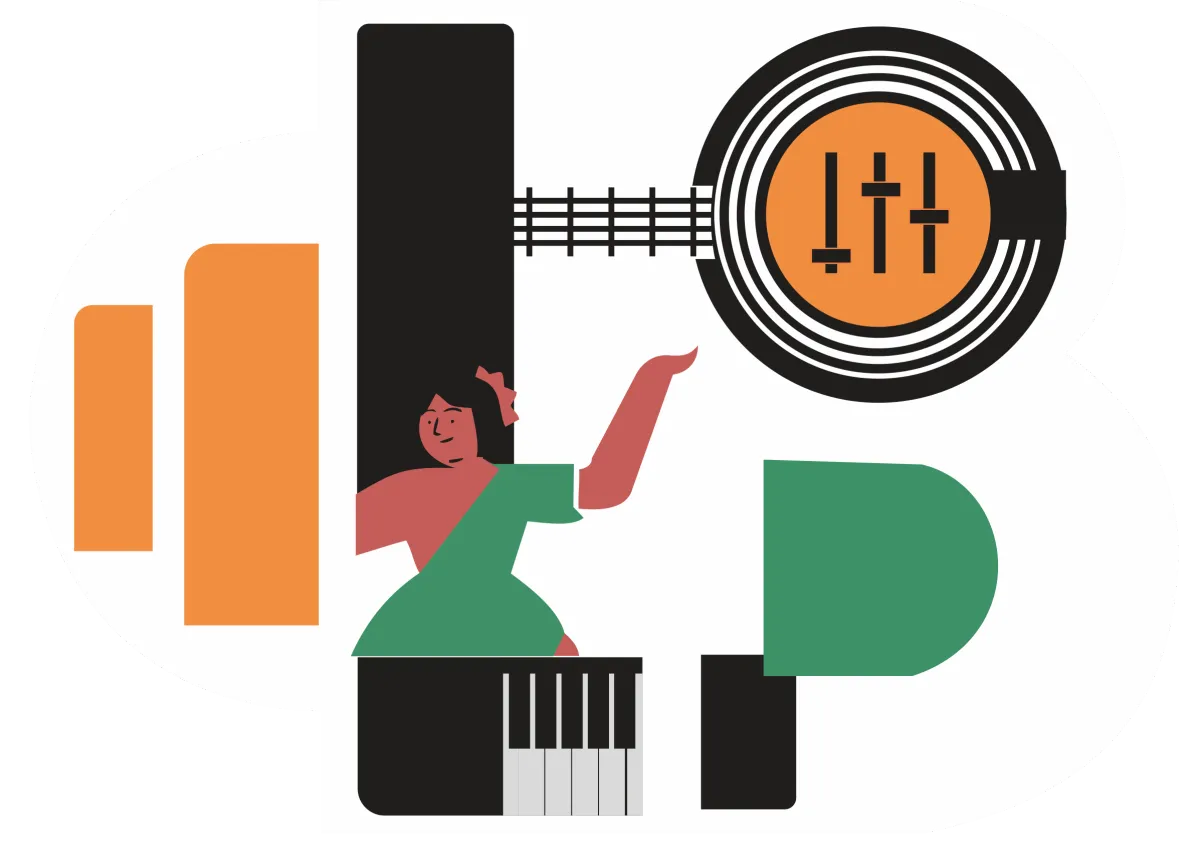
MUSIC SCHOOL
Turn Up The Volume On Your Passion For Music
GUITAR
CLASSES
IN VAISHALI(GHAZIABAD)
FOR
ALL
AGE GROUP
EXAMS CONDUCT BY

Trinity College London, established in 1872, is a leading international awarding organisation, publisher and independent education charity. We specialise in the assessment of communicative and performance skills covering music, drama, combined arts and English language.
With over 850,000 candidates a year in more than 60 countries worldwide, Trinity qualifications are specifically designed to help students progress. Our aim is to inspire teachers and learners through the creation of assessments that are enjoyable to prepare for, rewarding to teach and that develop the skills needed in real life.

Rockschool music qualifications are tailor-made for the contemporary musician. Ranging from introductory grades to advanced levels of study, RSL Awards' graded music exams ensure hard work is rewarded. For over 30 years we have been producing materials to help people learn musical instruments and assess their progress.
VARIETY OF STYLES
BLUES
Blues guitar is the root of so many styles that flourished over the past century.
Rock, jazz, funk, soul, metal, pop, bluegrass, country, and many forms of contemporary guitar playing all draw from blues influences, and the history of blues as its own genre is richly varied.
Students of blues guitar at Leadsbug study the whole range of this history, from the pre-World War II days of ragtime, delta blues, and boogie-woogie, through Chicago and Texas styles, rockabilly, country swing, hard rock, and the style's current innovations.
JAZZ
It's impossible to adequately describe the
sound of jazz music. The style encompasses so many vantage points, and is guided by a spirit of exploration, improvisation, and discovery.
Jazz guitar students at Leadsbug immerse themselves in the full range of the style's distinctive traditions
which include swing, bebop, menouche, Latin, contemporary , and neo-soul; and they learn from faculty mentors who are masters in each of these approaches.
METAL
Heavy rock guitar styles often require specific techniques, such as tapping and sweep picking, which you can learn to play at slower speeds, and then speed up until they sound like the mesmerizing hallmarks of metal riffs and solos.
Mastering these and other right- and left-hand techniques demands hours upon hours of practice. "It's not a style of playing you just dabble in," says Stump
To play at a high technical level requires total discipline and dedication, and a true love of craft. While metal has many different subgenres, just about all of them require strong command of the instrument and extreme technical proficiency."
FUNK
Having a solid sense of time and good right-hand rhythm technique (keep the right hand moving, whether or not you’re hitting the strings on a strum) is a good foundation for someone interested in playing R&B/funk,
It is essential to learn how to listen to the rest of the band and be aware of the contribution that your part is making to the song. That will help you 'lock in' to the groove. guitarists also need to focus on developing rhythm section techniques including rhythm guitar grooves, single-note rhythms, and improvisation.
ROCK N POP
Much like jazz, it's tough to pin down one set of sonic qualities that make up "rock music."
Rock guitar encompasses much of modern popular music, and its qualities are constantly combining with other styles and sounds.
Rock guitar students at Leadsbug trace this lineage from early rock and roll through rockabilly, country swing, hard rock, metal, progressive rock, jam band, and the multitude of subgenres that continue to emerge.
FUSION
fusion is such a fluid style with roots in so many other traditions, fusion guitarists need to be curious and versatile players. Fusion guitar students at Leadsbug might choose to develop their grasp of advanced jazz harmony and modal innovations, Brazilian and Latin comping and solo styles, improvising and composing in variable meters, and using electronic effects to shape their tone.
THE CHOICE IS YOURS
Every guitarist has to find their own way toward a sound that's authentically theirs. In this sense, there are as many guitar styles as there are guitarists. The excitement of what comes next is this: choosing from each of these traditions and genres what you want to incorporate into your playing, seeking out the mentors and resources to ground you in a deep instrumental proficiency and in the specific techniques and authenticities of your chosen styles, and putting in the years of work to make that sound your own.